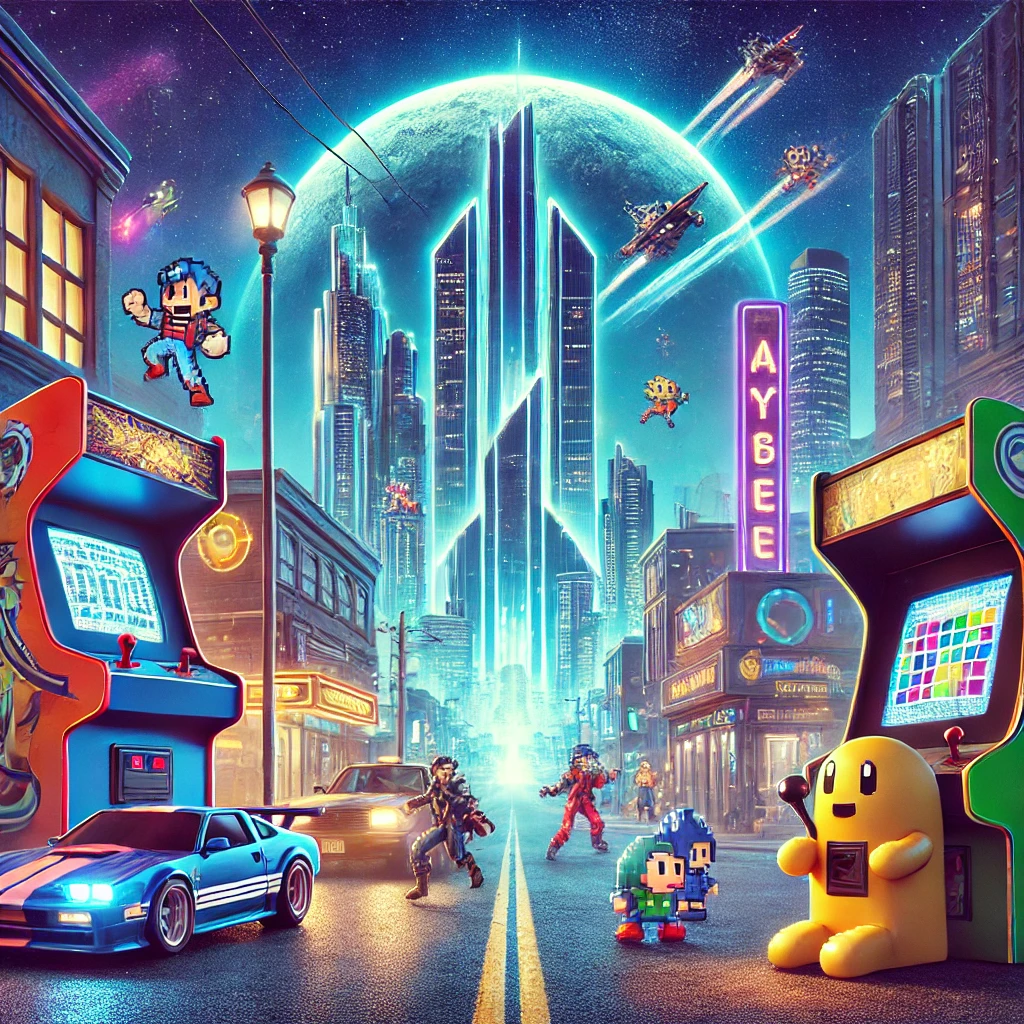Table of Contents Show
Game reboots often come with enormous fanfare, tantalizing trailers, and promises of revitalizing beloved classics for modern audiences. Yet, more often than not, these reboots fail to meet the expectations of players. Whether it’s due to poor execution, misguided updates, or simply the burden of nostalgia, game reboots frequently fall short. Here’s an exploration of the reasons why game reboots rarely hit the mark, with insights into how developers might bridge the gap between nostalgic reverence and modern innovation.
1. The Nostalgia Trap
Nostalgia is a powerful force. Players remember classic games not just for their mechanics or graphics but for the emotional resonance tied to the time they played them. This creates an almost insurmountable benchmark for reboots. Developers might faithfully replicate the gameplay or update graphics, but the elusive “feel” of the original can be hard to capture.
For example, when “Tony Hawk’s Pro Skater 1+2” was remastered, it achieved significant success because it closely honored the gameplay mechanics and soundtrack of the original. But such successes are rare. Often, reboots fail to evoke the same emotional connection, leaving fans disappointed.
2. Modernizing Without Losing Identity
Updating a game for modern audiences is a double-edged sword. Developers must balance retaining the essence of the original while making the game appealing to new players. Many fail by either straying too far from the original’s formula or by not innovating enough.
Take “Prince of Persia: The Sands of Time Remake.” Initially celebrated as a return of a beloved classic, the game faced backlash for outdated graphics and lackluster improvements. Fans felt it neither honored the original nor met the standards of current-gen gaming.
3. Mismatch Between Expectations and Reality
Marketing plays a significant role in setting expectations. Overhyped trailers often showcase polished visuals and tantalizing gameplay mechanics that don’t always translate to the final product. Reboots like “Aliens: Colonial Marines” or “Warcraft III: Reforged” suffered catastrophic failures partly because the games fell drastically short of what their promotional materials promised.
4. Technical Challenges
Updating classic games for modern platforms is not as straightforward as it seems. Developers face technical challenges in adapting legacy codebases to current hardware and software standards. This can lead to bugs, performance issues, or compromises in gameplay mechanics that were smooth in the original.
One notable example is the “Grand Theft Auto: The Trilogy – The Definitive Edition.” This reboot attempted to modernize three iconic games but was riddled with graphical glitches, poor AI behavior, and performance issues, leading to widespread criticism.
5. Overreliance on Graphics
Many reboots focus heavily on visual upgrades, assuming that modern graphics are what fans crave. While updated visuals can enhance immersion, they cannot compensate for lackluster gameplay or missing elements that made the original beloved.
“Final Fantasy VII Remake” struck a good balance by delivering stunning visuals while reimagining gameplay mechanics. However, games like “Secret of Mana” (2018) suffered for prioritizing graphics over the soul of the gameplay, leaving fans underwhelmed.
6. Changes to Core Gameplay
Reboots often try to modernize gameplay mechanics, but changes can alienate core fans. Introducing new systems or altering beloved mechanics risks breaking the trust of loyal players.
“Thief” (2014) serves as a cautionary tale. The reboot shifted focus from the stealthy, player-driven gameplay of the originals to a more action-oriented approach, alienating fans and diluting the series’ identity.
7. Fan Expectations vs. Developer Vision
Developers may have their own creative vision for a reboot, which doesn’t always align with what fans want. This divergence can result in a game that feels disconnected from the source material.
A prime example is “DMC: Devil May Cry,” which reimagined Dante and the franchise’s tone in a way that polarized fans. While some appreciated the fresh take, others felt it betrayed the essence of the original series.
8. Rushed Development Cycles
The pressure to release a reboot quickly, often to capitalize on nostalgia or coincide with anniversaries, can lead to rushed development. This results in unfinished or poorly executed games, tarnishing their legacy.
“Mass Effect: Legendary Edition” avoided this pitfall by taking the time to polish and improve gameplay across all three games while staying true to the originals, but it remains an outlier in an industry prone to rushing.
9. Mismanagement of Original Creators’ Involvement
The absence of original creators in the reboot process can result in a game losing its unique identity. Original developers have intimate knowledge of the design choices and philosophies that made the classic special.
For instance, “Perfect Dark Zero,” a prequel to the beloved “Perfect Dark,” failed to live up to its predecessor partly because the original Rare team wasn’t involved. This left fans longing for the charm and innovation of the original.
10. Economic Pressures
Game development is expensive, and publishers often prioritize profit over quality. Microtransactions, incomplete content, or other cost-cutting measures can ruin reboots.
“Battlefield 2042,” while not a traditional reboot, serves as a cautionary tale of how focusing on monetization over delivering a polished experience can alienate players and harm a franchise.
How Developers Can Bridge the Gap
While the challenges are significant, successful reboots show that meeting expectations is not impossible. Here are strategies developers can use:
| Challenge | Solution |
|---|---|
| Nostalgia vs. Innovation | Honor the core mechanics and themes while integrating meaningful updates. |
| Technical Challenges | Allocate sufficient resources and time for development. |
| Mismatched Expectations | Communicate transparently about changes and what fans can expect. |
| Rushed Development | Avoid tight deadlines; prioritize quality over quick release. |
| Original Creators’ Involvement | Collaborate with original developers or consultants to preserve authenticity. |
Conclusion
Game reboots often walk a tightrope between reverence for the past and the demands of modern gaming. The failures of many reboots underscore how difficult it is to strike the right balance. By learning from past mistakes and prioritizing authenticity, innovation, and quality, developers can create reboots that meet – and even exceed – expectations. After all, the goal should be to reignite the magic of the original while crafting an experience that resonates with today’s players.









